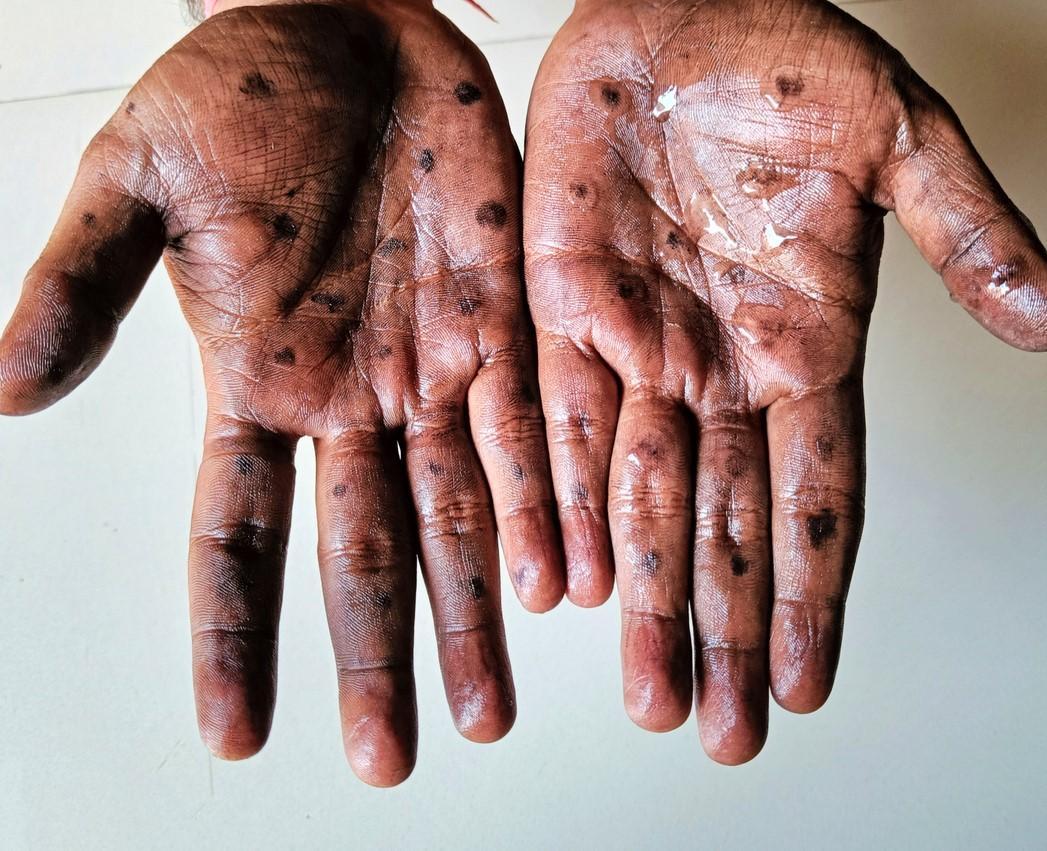Top officials from the Africa Centres for Disease Control and Prevention (Africa CDC) today detailed challenges mpox responders are facing in a virus hot spot in the Democratic Republic of the Congo’s (DRC’s) North Kivu province, where intense fighting has flared in and around the capital city of Goma.
Elsewhere in Africa, cases are on the rise in Uganda and Zambia, though officials report progress in Burundi, which over the past several months has been one of the main countries affected by the clade 1b virus.
Mpox patients flee for their lives from treatment centers
At a media telebriefing today, Yap Boum, PhD, MPH, deputy incident manager for Africa CDC’s mpox response, said insecurity in Goma, North Kivu’s provincial capital, has led to disruptions in sample collection and confirmation of cases at the National Institute for Biomedical Research (INRB) lab in Goma. The problems have led to a decline in reporting in North Kivu province, as well as neighboring Tshopo province, which depends on testing at the Goma lab.
Mpox patients caught in the crossfire and fearing for their lives escaped from treatment centers, and he said 16 of the 143 patients have been recovered.
Boum said insecurity in the conflict region may lead to further shortages in lab supplies. He said the biggest internally displaced person camp, which typically houses 700,000 people, is now nearly empty and a World Food Program warehouse was partly looted.
As deaths and injuries rise, discussions are underway to open a humanitarian corridor in the region, he said.
In one promising development, World Health Organization (WHO) Director-General Tedros Adhanom Ghebreyesus, PhD, said yesterday on X that the WHO and local partners were able to partially resume mpox vaccination in Goma. “But the overall response continues to be severely impacted by the violence,” he added.
Rising cases in Uganda and Zambia
Last week, 2,634 new mpox cases were reported from eight countries, mostly from the DRC, Uganda, and Burundi, Boum said.
Africa CDC is seeing upward trends in Zambia and Uganda.
Transmission in sexual networks seems to be driving much of the activity Uganda, which he said is a challenge for contact tracing. The area around Kampala, the country’s capital, remains the most affected district.
However, on the positive side, he said vaccination targeting vulnerable groups began recently, backed by a supply of 10,000 vaccine doses.
In Zambia, case numbers are small but growing, with clade 1b circulating and cases detected in 3 of the country’s 10 provinces.
Burundi’s cases have been trending downward, but Boum said a long turnaround in testing, limited isolation capacity, and overcrowded living conditions remain challenging.
Officials weigh in on status of US support
In September, the Biden Administration had announced new support for Africa’s mpox outbreak, which has affected 21 African countries and involves multiple clades—including the novel 1b clade that has been linked to travel—and limited secondary cases in several countries outside the region over the past several months.
The pledge included 1 million vaccine doses and $500 million to assist with the outbreak response.
Ngashi Ngongo, MD, PhD, head of Africa CDC's mpox incident management team, said $340 million of the pledge had been dispersed, and he said that there are no vaccine delivery status changes that Africa CDC knows of, though officials are following developments closely. The vaccine donations funnel through GAVI, the Vaccine Alliance.
He noted that the United States was one of the main partners early in the outbreak and that USAID was one of the first to invest in the region’s mpox response. US President Donald Trump has ordered sweeping changes in USAID, along with a near-total freeze on foreign aid.





















